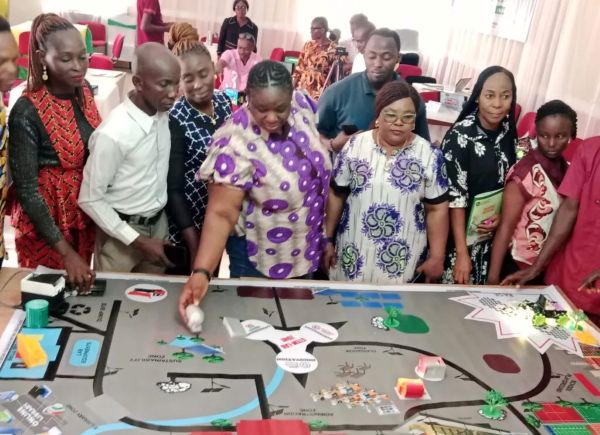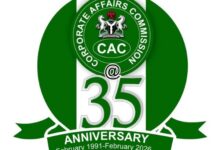NCDMB, NGOs Drive Future-Ready Education with Robotics Training for South-South STEM Teachers

In a bold stride toward positioning Nigeria’s education system for a digitally driven future, the Nigerian Content Development and Monitoring Board (NCDMB) has partnered with a coalition of STEM-focused Non-Governmental Organisations (NGOs) to deliver intensive training on robotics for secondary school teachers across the South-South region.
Held in Warri, Delta State, the STEM Teachers’ Training on Robotics brought together educators from secondary schools in Edo, Delta, Bayelsa, and Rivers States for a transformative week of hands-on learning, digital upskilling, and innovation-focused pedagogy.
The Robotics training initiative, under the broader umbrella of the “Sustainable and Inclusive Skilled Economy Sensitisation and Training Programme for Secondary Schools,” aims to close Nigeria’s STEM skills gap by empowering teachers—who are the first touchpoint of influence in shaping future talent—with modern, globally competitive knowledge in robotics, coding, and problem-solving.
Building Capacity for a Tech-Driven Future
Speaking at the event, Dr Elizabeth Eterigho, CEO of Phoenixgirls Tech Foundation, emphasised that the training was designed not merely as a one-off workshop, but as a catalyst to deepen the roots of technology-based education in Nigeria. “STEM education is the cornerstone of innovation, economic growth, and social development. This training enhances the ability of our educators to equip students for an increasingly complex and tech-driven world,” she said.
Supported by other key players such as Contego Servo International Limited and Odyssey Educational Foundation, the programme’s hands-on modules exposed participants to the core principles of robotics, coding, teamwork, and sustainable innovation.
Participants were trained to integrate robotics challenges into their curriculum, nurture creativity among students, and use technology as a solution-driver in local communities.
NCDMB: Expanding Mandate Beyond Oil & Gas
For the NCDMB, traditionally known for its regulatory oversight in Nigeria’s oil and gas value chain, this initiative reflects a strategic pivot towards human capital development and a future-oriented Nigerian content strategy.
Mr Festus Erubore, NCDMB’s Training Manager, who represented Executive Secretary Mr Felix Ogbe, reaffirmed the Board’s commitment to investing in capacity building beyond hydrocarbons. “This training is part of our larger agenda to develop a skilled, tech-savvy Nigerian workforce across sectors,” he noted.
The move aligns with national goals under the Presidential Initiative on Industrialisation and Digital Economy, as Nigeria seeks to diversify its economy and future-proof its youth against global competitiveness challenges.
Implications for Nigeria’s Education and Labour Market
BRANDECONOMY notes that this initiative couldn’t have come at a more critical time. With global industries embracing Industry 4.0 technologies—from Artificial Intelligence and Robotics to the Internet of Things—Nigerian students and educators risk being left behind unless aggressive, structured interventions are implemented.
Nigeria continues to rank low in global STEM education indices, partly due to outdated curricula, poorly equipped laboratories, and a lack of teacher training. The robotics programme directly addresses these gaps by preparing teachers not only to understand but also to teach core technologies shaping the global economy.
“The impact of this programme is exponential,” said Dr Eterigho. “Every teacher trained here will influence hundreds of students, creating a ripple effect that could transform entire communities.”
Participating Schools and Regional Reach
Among the participating schools were:
- Rivers State: Community Secondary School, Kalio-Ama, Okrika; Community Secondary School, Rumuoro Ogbakri
- Edo State: Ozolua Grammar School, Ologbo; Ajoki Secondary School, Ajoki
- Delta State: Okotie-Eboh Grammar School, Sapele; Iwere College, Koko; Nana Model College, Warri
- Bayelsa State: Community Secondary School, Okutukutu/Etegwe; Epie National High School, Kpansia, Yenagoa
One of the participants, Mr Vincent Ebire, a Mathematics teacher from Kalio-Ama, Okrika, described the experience as “eye-opening,” vowing to take the lessons back to his school to ignite student interest in tech careers.
The Broader Vision: Inclusive, Sustainable Development
More than a technical training, the programme carries deeper implications for social equity, sustainability, and economic inclusion. Dr Eterigho underscored the importance of training students to become not just workers, but solution-driven citizens aware of their societal and environmental responsibilities.
“Robotics can help our students develop real-world solutions—from waste management to clean energy—while also teaching them to collaborate, lead, and innovate,” she said.
As Nigeria grapples with high youth unemployment and a rapidly changing global labour market, interventions like this robotics training stand out as timely, strategic, and deeply necessary. By empowering teachers today, NCDMB and its partners are laying the groundwork for a future-ready workforce—a generation of Nigerian innovators equipped not just to survive, but to lead in the global tech economy.











